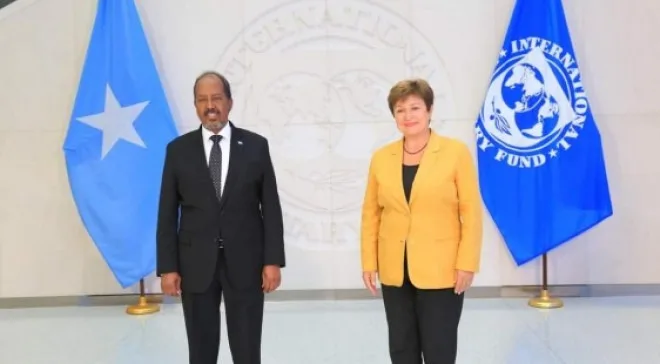The government of Somalia celebrated a significant milestone as the IMF and World Bank granted $4.5 billion in debt relief.
Prime Minister Hamza Abdi Barre emphasized that this relief, part of the Heavily Indebted Poor Countries (HIPC) program, symbolizes Somalia’s financial viability and attracts foreign investment.
The relief, inclusive of forgiveness from various creditors, reduces Somalia’s external debt from 64% of GDP in 2018 to less than 6% by the end of 2023.
PM Barre sees this as a monumental opportunity, allowing Somalia to invest in development, revitalize the economy, and access loans from international institutions.
In contrast, Ethiopia faces financial challenges, prompting concerns about its ability to meet loan obligations. Reports suggest doubts over repaying a 1 billion euros loan and $33 million interest from the 2014 Eurobond loan, raising fears of financial distress akin to Zambia and Ghana.
Ethiopia engaged in discussions with creditors, revealing its struggles. A Bloomberg report highlights a 14-day deadline to settle the debt due to a shortage of foreign currency reserves.
The Ministry of Finance is seeking an extension, but Ethiopia’s classification among countries unable to meet obligations raises concerns about future credibility with creditors. Fitch Rating has also labeled Ethiopia as financially challenged.
Ethiopia’s economic woes, exacerbated by a $29 trillion foreign debt (half from China), prompt efforts to extend repayment periods with China, the World Bank, and other creditors.
While China granted a two-year extension, talks are ongoing with various institutions. Ethiopia’s economic challenges stem from conflicts, the covid-19 pandemic, and unfavorable international conditions, creating a complex financial landscape for the nation.
